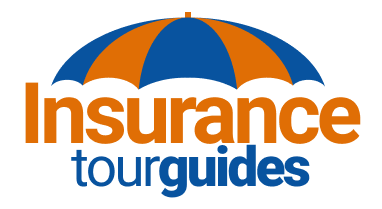Traditional jobs often come with health, disability, and liability insurance—but what about gig workers and freelancers? Whether you drive for a rideshare service, deliver food, or run your own business, you may need to find and manage your own coverage. Learn about the types of insurance available for independent workers and how to protect yourself financially.
Why Gig Workers and Freelancers Need Insurance
Without an employer providing benefits, independent workers are responsible for their own coverage. Unexpected events—like accidents, illnesses, or legal disputes—can quickly become financial burdens. The right insurance helps protect against:
✔ Medical emergencies (without employer health benefits)
✔ Lost income due to injury or illness
✔ Liability risks from client disputes
✔ Property damage or equipment loss
Essential Types of Insurance for Gig Workers
📌 1. Health Insurance
Since freelancers don’t get employer-sponsored health benefits, they must find their own coverage. Options include:
- Affordable Care Act (ACA) marketplace plans
- Health Savings Accounts (HSA) and high-deductible plans
- Short-term health insurance (temporary coverage)
- Freelancer associations offering group health plans
💡 Tip: If you earn a lower income, you may qualify for subsidies that reduce your monthly premiums through the ACA marketplace.
📌 2. Disability Insurance (Protects Your Income)
If an injury or illness prevents you from working, disability insurance replaces lost income. Since gig workers don’t have paid sick leave, this coverage is especially important.
Options include:
✔ Short-term disability (covers 3–6 months)
✔ Long-term disability (pays benefits for years if needed)
📌 3. Liability Insurance (Covers Client and Business Disputes)
Freelancers and gig workers face legal risks if clients claim negligence, errors, or damages. Depending on your job, you may need:
- General liability insurance (for injuries or property damage caused to others)
- Professional liability insurance (for freelancers in consulting, design, or tech)
- Rideshare insurance (for Uber/Lyft drivers—fills gaps between personal and company policies)
📌 4. Business Insurance (Protects Equipment and Work Assets)
If you use expensive tools, cameras, or computers for your gig, business insurance covers losses from theft, fire, or damage.
✔ Home-based business insurance – Covers work equipment at home.
✔ Commercial property insurance – If you rent office space or own business property.
📌 5. Auto Insurance (for Rideshare and Delivery Drivers)
Standard personal auto insurance won’t cover accidents while driving for work. Rideshare and delivery drivers should:
- Check if Uber, Lyft, or DoorDash provides coverage during rides.
- Get a commercial auto policy if driving is a primary source of income.
Where to Find Insurance as a Gig Worker
🔹 Healthcare.gov (for marketplace health plans)
🔹 Freelancer unions and associations (offer group health and liability coverage)
🔹 Insurance brokers or online comparison tools (to find the best rates)
The Bottom Line: Protect Your Independent Career
Being a gig worker or freelancer means more freedom, but also more responsibility when it comes to insurance. Without coverage, a single accident or lawsuit could jeopardize your income. Take time to explore your options and invest in the right protection—your future self will thank you!

